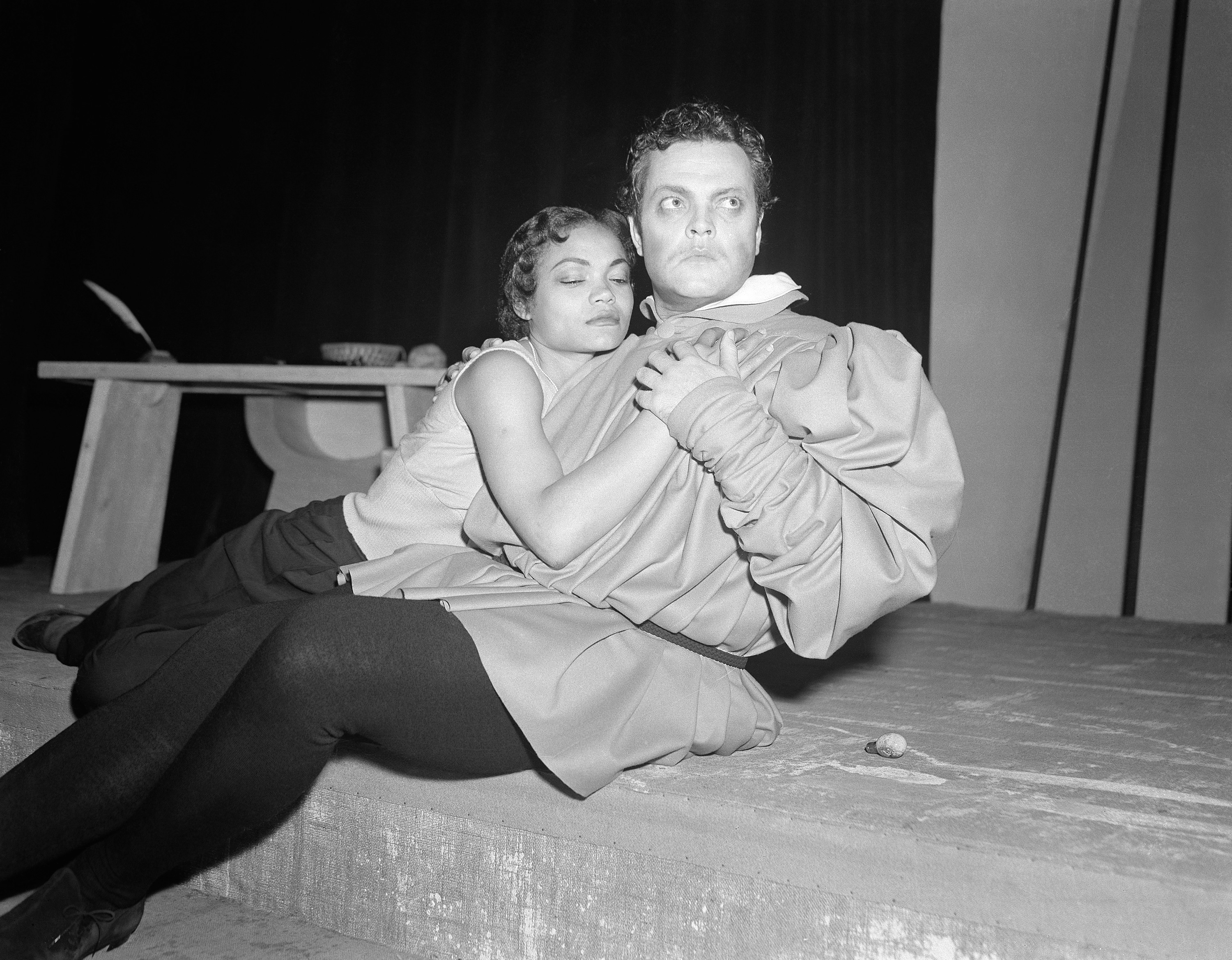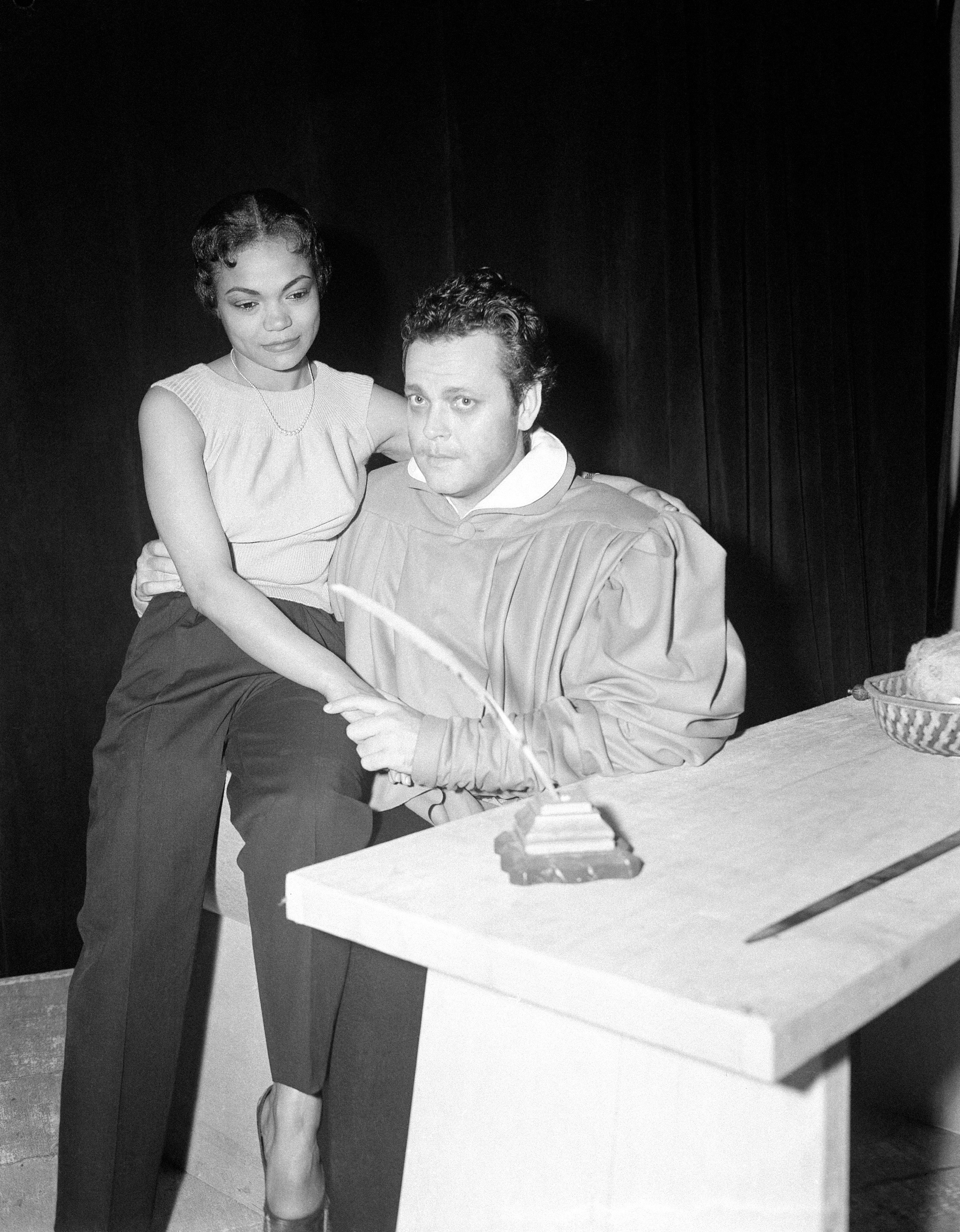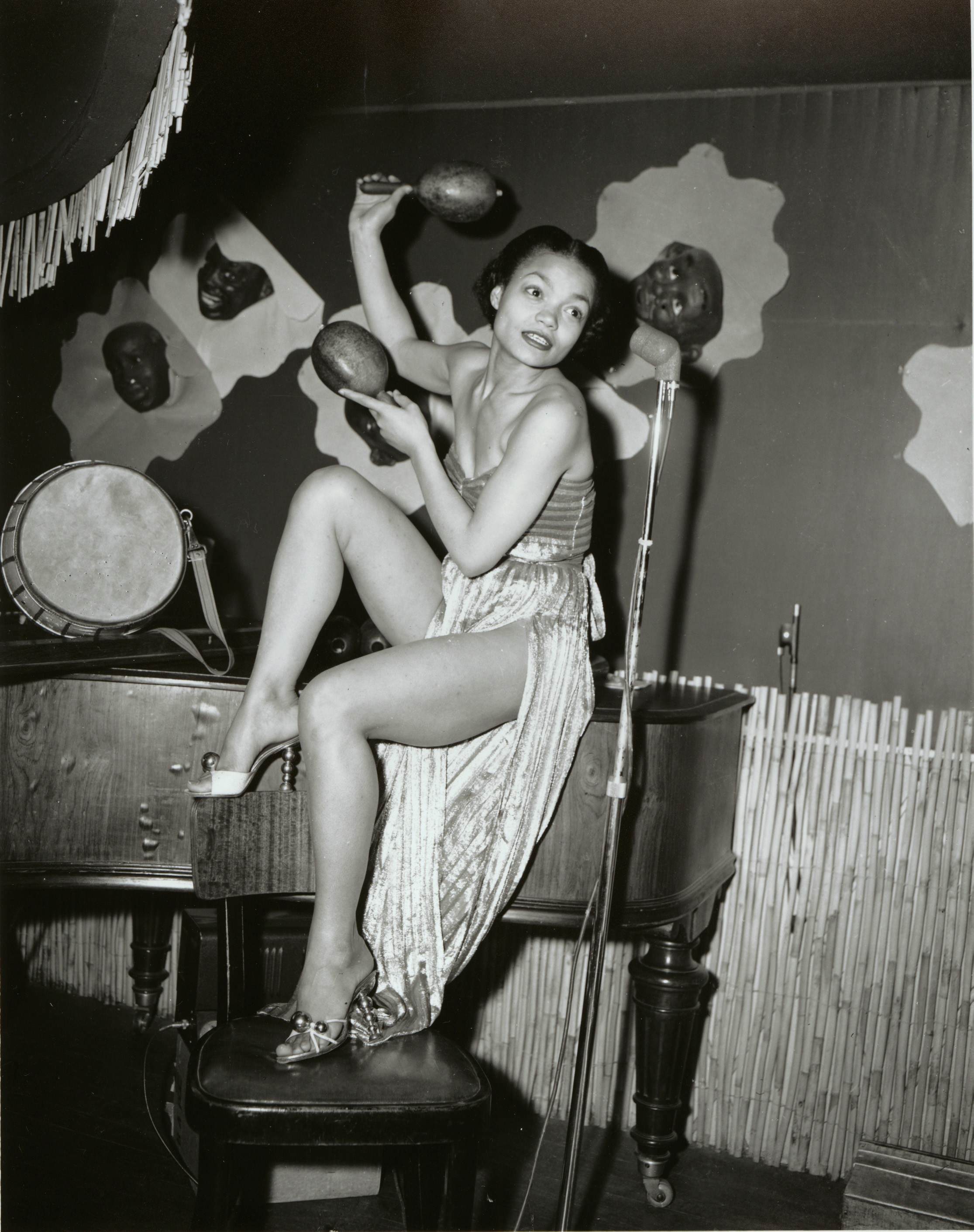
Orson Welles as Faust rehearses with Eartha Kitt as Helen of Troy at the theatre in Paris on June 14, 1950.
In 1950 Eartha Kitt was performing in a solo show at the Parisian night club Carroll’s, a lesbian haunt run supposedly by an old flame of Marlene Dietrich:
Her name was Fred – one of the most beautiful women you ever want to see in your life, always dressed as a man.
Eartha’s show was a big success and ran for 11 months. One night she was seen by an awestruck Welles who went on to offer her the role of Helen of Troy in a show he was producing which notably featured his own version of Faust.
The production, not particularly successful in Paris, went on to Frankfurt and was put on for the American troops stationed there. The Stars and Stripes newspaper reviewed the show:
A very lovely young lady who sings songs — and writes them herself — an Irish actor, and an American Jack-of-all-theatrical-trades are now appearing In a production called “An Evening With Orson Welles” being presented before EUCOM personnel and German residents of Frankfurt at the theater in the zoo.
The title is misleading. Welles is indeed around most of the two-and-a-half hours, and acquits himself well in his own version of “Faust” (based on material by Marlowe, Milton and Dante), and also delivers a superb soliloquy in a scene from Shakespeare’s “Henry VI.”
Eartha Kitt, whose haunting rendition of Duke Ellington’s “Hungry Little Trouble” blends beautifully with the poetry of “Faust,” quite literally steals the show. The petite 22-year-old South Carolinian invariably draws applause by her singing of “Yo Creo Yo Tengo un Amor” (I Think I Have a Love), a song she wrote herself. Her brief recital between the dramatic portions of the production is certainly worth the price of admission.
As a whole, the show suffers by trying to offer too much. The admittedly talented Welles seems to display all his tricks, dramatic and otherwise, within too short a time. Supported by Micheal MacLiammoir and Miss Kitt, he presents a convincing and artistic “Faust,” although one wonders if the piece would not go over more effectively on the radio or as a television production.
Unfortunately, Welles has detracted from his major presentation by offering a bit out of Oscar Wilde’s comedy “The Importance of Being Earnest,” a number of thoroughly professional card tricks and the “Henry VI” scene, to say nothing of Miss Kitt’s recital, all between 8:30 and 11 p.m.

After the opening of his play The Blessed and the Damned at the Theatre Edouard VII in Paris on June 20, 1950, author, producer and leading man Orson Welles went out to celebrate in a Montmartre nightclub. He is talking with Hilton Edwards, who is also in the play. Between them is leading woman Eartha Kitt.

Orson Welles as Faust rehearses with Eartha Kitt as Helen of Troy at the theatre in Paris on June 14, 1950. Welles is playing the leading role in a play called The Blessed and the Damned which he wrote himself and which he is directing.

Eartha Kitt, rehearses for a show in Paris with a five piece rhumba band in the Club Perroquet (Parrot.) Kitt, a sultry singer, dancer and actress who rose from South Carolina cotton fields to become an international symbol of elegance and sensuality.
Would you like to support Flashbak?
Please consider making a donation to our site. We don't want to rely on ads to bring you the best of visual culture. You can also support us by signing up to our Mailing List. And you can also follow us on Facebook, Instagram and Twitter. For great art and culture delivered to your door, visit our shop.

